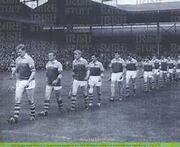|
Urgency and ease have their places in life.
But to live a life of relentless urgency can have us frazzled and anxious. Perpetual ease can bring about a comfort that soon descends to laziness. Life is a lot about timing and pace. Knowing when to apply the brakes, drop a gear, or when to accelerate, when to put the foot to the floor, lets us bring all our faculties into play. And that's good. We need to keep ourselves in tune with our needs. That awareness allows us keep the faculties in use. We move with urgency, and we avoid some impending disaster. we learn to stop, come to a halt, rest, and we replenish the body, the mind, the spirit. That's what pace is. It's not about wandering around in some kind of wishful thinking mode of posed indifference when our world is threatened or attacked. That's when we need to search within, find our resources and qualities and bring them to our defence. And from there to whatever plane of consolidation to which we aspire. Many of us do this a lot. But we can forget to stop. Urgency can become a habit. We can confuse urgency with efficiency. This awareness makes a difference. And that's often the difference that makes the difference.
0 Comments
We don't have to be Presidents of America, or International Star Performers. But when we want to get something done, we need to ACT. Inaction breeds doubt and fear. Action breeds confidence and courage. If you want to conquer fear, do not sit and think about it. Get busy. Do something. ~Dale Carnegie  Here's a useful piece of factual information. When we start training, improving our posture, and practising Deep Diaphragmatic Breathing , a couple of physiological effects take place. 1. Our lung capacity expands and we process more oxygen to the body. Oxygen is the number one key to survival, good health and constant energy. 2. Nature doesn't let more oxygen go to waste; she makes more red blood cells tp accommodate it. 3. Then she makes more blood vessels to carry the blood to the various parts of the body. 4. Then the blood begins to flow more freely in the system. 5. As the muscles improve in tone, they become more conditioned, more relaxed. 6. They also become more mobile, less tense and help push the blood more powerfully around the system. That takes enormous pressure off the heart and arteries. 7. Both heart and arteries can do a lot more work with a lot less effort. And that's how getting, and keeping, ourselves fit can lower blood pressure, improve circulation, and revitalise every organ, tissue and cell in our bodies. That's how we get too have more energy, better concentration, improved digestion, efficient elimination and greater resistance to colds, tiredness and mental fatigue. Clinical illness or injury apart, anyone can learn and develop this vital skill. And that's what it is, a fundamental skill. Like all skills, it has its basics, and these can be learned, developed and applied. By anyone. We've spoken before about a Statement of Intent.
It'll give a clear indication of the any intended outcome. In business, the equivalent is called a Mission Statement. For those who are serious about their intentions, it's a serious fact. Business people can quote their Mission Statements with clarity. And more importantly, with conviction. It's the triphammer for progress. When infused with beliefs, values, it drives any operation with purpose. For example, if the mission statement is compatible with all your beliefs and personal values, it will give meaning and direction to your policies, and you can operate them , implement them, with certitude and confidence. Certitude comes from the definition, the articulation of the goal. Confidence comes from your complete belief in the value of what you’re doing, whether it’s for yourself or others. Start using odd moments to developing it. Catch yourself in your time, and ask what you can do to enhance your life. You can do this randomly. You’re not looking for an immediate and life-solving answer, though you may get one. You’re training your mind to be selective about what you’re thinking. Hour by hour, day by day, you’ll find yourself looking at your life and everything in it with a purpose. As you do this frequently, you may find that you become more pro-active in your thinking and in your behaviour. Spontaneous reaction and over-reaction begin to diminish. You’ll find your mind foraging and mining new approaches and alternative responses. Abstract hazy aims begin to fade and get replaced with clear points, definite aims, and precise directions with which you feel comfortable and propelled. It's a statement that sums up your purpose. The Art of Creative Avoidance.
When we do nothing, nothing happens. Now, that’s not news to any of us. But, if you start anything, you’ll achieve something. The doing is vital. So many great ideas and aspirations founder on the Rock of Procrastination. The odd thing is that to do nothing, when we know we should be doing a particular thing, is damned hard work. And it puts a terrible strain on the nervous system, and our energy. The rationalising we do for why we can’t, don’t, shouldn’t, do it, is exhausting, draining, debilitating. It’s a really tough number to counter. But we do it with great energy, will, and creativity. And then of course, we end up drained, tired and wiped. I was a master of it. I had a writing schedule, and when it came to sit and write, there were a zillion important things to check, like, was there enough water in the kettle in case I wanted tea? Was the dog comfortable? Had the postman arrived? [good for a 5 minute stare through the window] Had I enough biros handy? Did I need the newspaper? Had I got one? [great for a 15 minute stroll, a headline scan to see if there were any items that might be relevant to my current project] Was there petrol in the car? Did the grass need cutting? You get the notion; we tend to do anything but what we’re meant to be doing. Pretty quickly we get familiar with The Skill of Avoidance. With practice, it can become a real skill. I believe at times I raised it to the level of art. It’s epidemic. It spreads into everything else we want to do. We become Masters of Creative Avoidance. We become successful at failing to do what we set out to do.. Many of us find this tendency in our lives. And it can be crippling. But there is a way round it. In fact there are a couple. They’re hidden in the morass of confusion that we have so lovingly developed. Stay tuned. Today is important. Today is more important than any other day.
What you do, say, experience today will be part of your life, for the rest of your life. That goes for every day. But today is the only one you can do anything about, today. Get to it. For more on this, see HERE. (blog page) Mind Reading…
Few people can read minds. I don’t know anyone who can. Yet we tend to think that those near and dear to us ‘know’ that they matter. Maybe they don’t. Or maybe they’ve forgotten because it’s been so long since we let them know. So it might be a good thing to remind them. This weekend. It doesn’t have to be a splurge, or an extravagance. A simple statement, a personal gesture, a true compliment, does the giver and the recipient a bit of good. 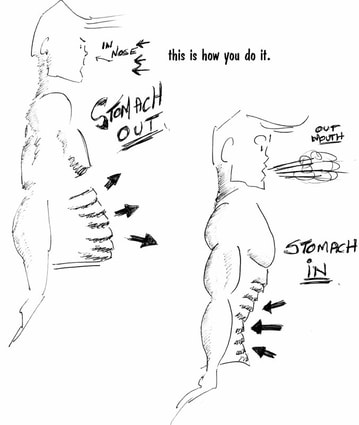 There is a simple, effective and underused process that can help us make the most of who we can be, wherever we are, with whatever we've got. Not attending to this can be a huge oversight. Breathing smoothly and evenly has a profound effect on the nervous system, the body, and the mind. When we practice this frequently, our minds become more quiet, more calm, and we begin to detach from distractions. This then allows us to create our own environment. We find ourselves becoming more connected to our purpose in life. This tends to bring about a life that's more proactive. And productive. We may also find that we begin to remind ourselves of the possibilities in our lives. This brings a sense of purpose, as we find ourselves reacting less and less to outside influences. We create our own individual pathway. We may also find ourselves becoming more calm and at ease, more composed. Being more composed, we find our bodies, and our nervous systems, are less tense and that we are in a state of physical and mental ease. Even in times of potential stress. This often leads to breakthroughs. We begin to respond to our own guided thoughts. Rather than being blown like a leaf in the wind, our thoughts tend to become directed, focused, on where we want to go with our lives. This becomes our motive force. This thinking reinforces our purpose and intent.. And that's just ONE benefit of a Guided Breathing Practice. There are many, many others.  Mindset, Attitude and Practice are the elements of Our Lives. We need to be healthy enough to be fit. We need to be fit enough to be well. We need to be well enough to practise. July 16, 2023A recent research project, at Harvard University, over a 10 year period on 12,000 men who were the subject of a weight training program, has shown a definite improvement on muscle/nerve connection and function and a sharper mental attention to tasks. Professor Abigail Mackie of Copenhagen University in Denmark Points out how weight training can help reduce belly, fat, improve oxygenation, and revitalise the growth and maintenance of stem cells, particularly as we age. This is why strength training is relevant to maintaining a youthful physique and mentality in our lives. She recommends it to help us keep ourselves looking younger, feeling younger and having more energy in a trim and well toned, healthy body. Weight training is often associated with extreme muscular development; massive chests, barn-door backs, and disproportionately large arms and shoulders, as it is often promoted in a number of the fitness magazines. This can frighten people off. They think that happens as a natural result of weight training. What they don’t realise, is that that kind of development needs intensive attention, and intention. It’s the result of extreme and consistent training. So, if you’re concerned about unintentional muscular development, don't be. However, we can tone, condition and train our body muscles to help us to a longer life of great vitality and mental energy. Weight training can also be used to develop a powerful cardiovascular and cardiorespiratory fitness. And that's the key to good health and body strength at cellular level. This means growth, maintenance and revitalisation of the body cells throughout the whole system. This is now recognised widely as a way to prolong youth, improve body tone and maintain sound mental health. Coupled with consistent breathing techniques and postural efficiency, with a weather eye on the diet, it is a simple, efficient, and effective way to protect our health, and our well-being. And this can be started at any age, as shown by Shirley Webb, who started 12 years ago, lifting weights at 76. A simple, well planned program, consistently practised with a bit of interest and attention, will prepare us well for the later years, not only prolonging life, but every bit as important, the quality of that life. For more details, CLICK HERE.  Being well, being in the frame of mind, and feeling well about whatever we’re doing, alters the likely outcome of that activity beyond imagination. Why? Because it makes the difference to how we do it, doesn't it? We often overlook the importance of how we do anything. Yet we see examples of this every weekend on our television sets. We see two teams play hurling, or rugby, or camogie, and we see there, right in front of us, that the difference in performance, and ultimately the result, is not so much about what people are doing as it is how they’re doing it. There are 30 players on the pitch. They're all playing the same game, in the same conditions, with the same rules. Yet one team is playing the other one off the pitch. It's the 'how', isn't it? The ascendant team is likely to be better prepared, better trained, and better practised. They are ready, ready to perform at a certain level. The other one isn't. It's a good lesson, isn't it? They've prepared physically. They've trained mentally. And they've rehearsed in physical and mental events that may replicate in the game. That's being ready, isn't it? And yet, when it comes to our own daily performance in whatever it is we are doing, we seem to forget this point. We tend to think that because we’re going through the motions, doing the steps according to the procedure, that we should be certain of a successful outcome. And while adherence to the procedure or game plan is recommended and admirable, what makes the real difference is how we do it.. This is the real value in seeing ourselves as the instruments of performance. Decades ago, I had a conversation with a music teacher. This teacher, while concerned with the lessons and exercises that needed to be learned, saw the value of the mindset and the attitude of the pupils coming to the lessons. Having once aspired to become a drummer, and having experienced the thrill and accomplishment of some basic learning, and using some basic skills, the importance of mindset and attitude became apparent to me. Way back then, it had become apparent to me that those whom I admired had a frame of mind, an attitude, an open-mindedness, a willingness, an ability to practice what they didn’t really want to do, to reach the levels at which they could now perform. Their performances then, were many levels ahead of those of us with a different mindset. They were aware not only of the importance of frequency, but of the attention and the content of their practice. The quality and purpose of their practice was at a different level to the average player. So, I was very interested in what this teacher had to say. As an example of the effect of this observation, I carried the same principle over to my physical training and general fitness regime. I applied it to all aspects of the regime in relation to my own personal goals in life. In the couple of seconds it took to realise that this principle was transferable to any activity, the levels and effectiveness of my training were transformed. The goals crystallised. Irrelevancies evaporated. From that day on, the whole meaning of being Fit and Healthy and Well took on a different significance. It meant that I was equipping myself with the wherewithal to achieve the relatively modest goals for my own life. But any goal, however modest or ambitious, needs a frame of mind to begin the activity, a physical and mental endurance to sustain it, and an emotional attachment to give it the life and vitality of meaning. It means we're fit for the purpose of doing what we need to do to get where we want to go. And that's what being 'Fit' is really about, isn't it? If you agree with that, you could do worse than click this link.  This post is about why it pays all of us to think about a simple, effective and underused process that can change how we feel, how we respond, and how we can make the most of who we can be, wherever we are, with whatever we've got. Breathing smoothly and evenly has a profound effect on the nervous system, the body, and the mind. As we practice this frequently, our minds become more quiet, more calm, and we begin to detach from distractions. This then allows us to create our own environment. We find ourselves becoming more connected to our purpose in life. This tends to bring about a life that's more proactive. We may also find that we begin to remind ourselves of the possibilities in our lives. This brings a sense of purpose. We may well find ourselves reacting less and less to outside influences. We create our own individual pathway. As we make more use of our own imagination, we may also find ourselves becoming more physically calm and at ease, more composed. Being more composed, we may find our bodies, and our nervous systems, are less tense, more calm, and that we are in a state of physical and mental ease. This state tends to prevail even in times of potential stress. This often leads to the breakthrough. We begin to respond to our own guided thoughts. Rather than being blown like a leaf in the wind, our thoughts tend to become harnessed, focused, on where we want to go with our lives. And this becomes our motive force. This thinking leads to reinforces our purpose and intent.. And that's just ONE benefit of a Guided Breathing Practice. There are many, many others. See HERE I believe most of us would be in agreement on the 80/20 principle.
It states that 80% of our results come from 20% of our input. I believe this particularly applies in the field of fitness and self development, though in different proportions. For instance, someone who wants to lose weight and get fundamentally fit will find that 80% of their result for that particular goal will come from their use of food. People spend 80% of their time, walking, running, exercising, talking about exercising, experimenting with different exercises. They will associate the result with all their thinking and talking and practice they did with the exercise. But 80% of the result, which is the loss of excess weight, will have come from the food use. So, it will appear that 80% of the result came from 20% of the input; and 80% of the input will have accounted for 20% of the result. The point of this is to become aware of what is really working for us in any endeavour, If you are running, a business, 80% of the success will come from some particular activity like marketing, or selling, or networking. If you’re a musician or an artist, 80% of your success will come from some particular insight, or practice, or some unique and individual factor. And then, like the business mentioned above, any commercial success will depend on some other activity, which will probably be a 70% or 80%or even 95% contribution. The lesson for us all here, I believe, is to decide what is the main contributory factor to the success of our efforts, and apply ourselves to it. This may sound simplistic, overstating the obvious. But in my experience over the years, it’s the most overlooked factor in getting results to be fit and healthy and well. We tend to do what we want to do rather than what we need to do. Most of us enjoy exercising in some form or other. Very few of us want to curtail our eating and drinking habits. They’re far too enjoyable. However, once we take a firm decision and put that decision into action a lot of the difficulty disappears. Most of the difficulty we find in that particular area is not so much in changing the activity as it is in committing to the decision. The decision needs to be firm. Not some pale, vague idea of something we must get around to sometime. Because we prefer to do the exercises than curtail our eating and drinking habits, we allow ourselves believe that the exercise will get the results in the weight loss and body shape. And of course though the exercise does help tone, shape and condition the body, and reinforce what we’re doing with the diet, the actual fat loss and internal condition is mainly brought about by how we use our food. Once that initial target has been achieved, then we can maintain and improve the condition with attention to exercise technique and frequency, and by keeping an awareness of the significance of diet. As a matter of interest, should you have any comments or observations to make on this, I’d be delighted to hear them and put them up for discussion in the Facebook group of Common Sense Wellness. Below is a little story I told a good few years ago. I was reminded of it recently by a reader of the book, 'Mindful Days', in which it appeared.
He suggested that I run it again for those who hadn't been on the list when it first went out. So, here it is. "It’s a peculiar thing about life, but we can learn anywhere, at any time, at any age. Sixty nine years ago, in a small seaside fishing village, I first learned a lesson in life that, though I didn’t recognize it at the time, was one of the most inspiring and useful pieces of practical wisdom that anyone could wish to experience. “Take your decision, do it with a will, and see it through.” I was ten years old when I was first told that. Like most people, I was influenced in life by certain figures. In times of difficulty, or indecision, or when faced with problems, I have turned often to my people of influence for guidance and direction. Three people figured mainly in my life; an American President, an English Novelist, and Jake. Jake was a gentle, fearsome, giant of a man. I first met him when I was ten, in nineteen fifty four, on a scorching July day. I had been swimming in Kilmore Quay harbour. I had paused at his moored boat for a rest, and seeing no one aboard, I had climbed up on the stern deck, where I’d soon fallen asleep in the hot sun. And that was where he found me, a short time later, when he came to work on his boat. Jake was highly regarded in the community, not only as a as a fisherman, but even more as a seaman, and highly esteemed as a sailor and a member of the lifeboat crew. He was a quiet, softly spoken individual, except when angered. In those days, trespassing on property of any kind, usually meant a clip on the ear and being dragged to your parents to explain yourself, or, if you were unlucky, to the local sergeant. But Jake’s approach was different. He started to talk to me about the coiled ropes underneath the deck, about tillers, rudders, masts and spars, jibs, mainsails, blocks, halyards, lanyards, beam widths, waterlines, and the thousand and one other things related to small sailing vessels. For Jake’s boat had no engine. You either went with the power of the wind, or got the oars out and put your back into it. Jake was also reputed to have seven bullets in his body, picked up on a beach in Normandy ten years prior to our meeting. He was rumoured to be living on borrowed time. I never asked about it, and he never offered information, except to say he was on the D-Day invasion, and that was that. Tragically, the rumour about his borrowed time was true, and Our Jake succumbed to his terrible injuries three years later. But in those three years, I spent much time with him, hauling lobster pots, laying long lines out around the Saltee Islands, and on the warm windy days in August, chasing the Mackerel up and down Ballyteigue Bay, between Kilmore and Duncannon. For every day I was privileged to spend with him, he never, ever, let me leave his company without the admonition, “Whatever you do in Life, Boy, take your decision, do it with a will, and see it through.” And so, I learned a lot about maintaining, repairing, running, and sailing, one of the fastest, over-canvassed, best made boats on the South East Coast. What I didn’t realise, was that the man was giving me one of the best life lessons that any boy could get. Though I did discover that later. A few years after Jake’s death, in my late teens, and my adulation for John F Kennedy, the American President, and Howard Spring, the English Novelist, was at its height. I realised that my admiration for both men was because, to my mind, they both fulfilled Jake’s criterion for life, ‘Take a decision, do it with a will, and see it through.’ JFK had shown his mettle in the Bay of Pigs incident, not to mention taking on Organised Crime with his brother Bobby. Howard Spring was a perfect role model for any aspiring writer, of any age. He had developed himself in life from very humble and disadvantaged origins, into a journalist, and then a novelist, of the highest calibre. It was Howard Spring who, for his powers of observation, Churchill brought when he went to meet with Stalin and Roosevelt in the Second World War. Often, in times of difficulty or indecision, I have asked myself what Jake would do in the same circumstances. Whatever the answer, it has always been a help. And even now, over 69 years on, when the apprehensions, the doubts, the anxieties, begin to creep in on some project or scheme I’m working on, I hear again that strong, resonant voice, “Take your decision, do it with a will, and see it through.” And I do. Still here. Still listening. Still learning.  The late, incomparable Stirling Moss, once pondered if a person concentrated his entire being, every ounce of his available energy, intelligence, and will, mental, physical and emotional, would he be able to find a way to walk on water. Some of Moss' achievements stretched the credulousness of his rivals, who did not believe he could do what he sometimes did. Friend, good morning. The response to the recent mails has been very heartening. More people are interested in the qualities of belief, courage, determination, application, and how they can be learned, developed, and applied. In a world run by systems, techniques, strategies and tactics and technology, it's refreshing to read mails from people who retain their faith in the value of human qualities to implement them. No doubt about it, it all comes back to people, doesn't it? 'You'd better believe it!' Rings a big bell, that, doesn't it? That's usually said when something that has been declared. It emphasises the belief that it should be noted, and taken seriously, that is, believed. And that's the significance of Belief. Anything that we do in life, anything, needs a fundamental belief. Belief is the foundation of every thought, every action, every hope or aspiration that we have. When we change, it's usually because there's a change in some belief we've harboured for a time. The belief changes, and that reflects in our thinking and feeling and subsequent action. An example would be when an undertaking is guided by doubt, which is just a negative belief. We then focus on the difficulties, the obstacles, that may present themselves. This can guide us into focusing on the power and the strength of the obstacles. This focus can overestimate the difficulties and underestimate our ability to deal with them. It's one of the challenges of being human. We can have a great idea, begin to think about it as a possibility, something we could do. Then possible difficulties arise in our imagination. We focus on these difficulties, we build them up and become overwhelmed by them. When this happens, it turns our original aspiration into a source of potential disaster, or humiliation, or ridicule, or failure, or embarrassment, and we drop it. We don’t even try to do what we know in our hearts that we might. What has happened is that our original hope has been allowed to become a failure in our imagination. Instead of entertaining the belief of what we might do, we have focused on what might happen to us. The power of doubt has been allowed to overwhelm us. Our belief has changed. This can happen gradually, or in the beat of a heart. And it's not new. As you’ve read here before, Shakespeare mentioned this over 400 years ago, when he stated: “Our doubts are traitors and make us lose the good we oft might gain, by fearing to attempt.” On the other hand, a belief in what we are attempting, can give us tremendous energy. The thought that what we are attempting can become reality is one of the great driving forces known to humans. Recent research now indicates very strongly how heredity as an influence on our lives has been overestimated. It is now more broadly believed, and growing, that we can exert much more influence on our lives than we previously thought we could. Research has shown that the power of perception, and the creation of an environment, can be used to shape our beliefs, our thoughts, our lives. There is widespread use of the word 'neuroplasticity'. This is the capacity of the central nervous system to connect with new neural pathways. It indicates that we can exert the influence on our minds and lives that were not thought possible previously. In his wonderful book, 'The Biology of Belief', Dr. Bruce Lipton writes about how every cell in the body is affected by what's going on in the mind. He shows ideas and ways that this has been done and how it can become the New Frontier of Development for the Human Race. Like all Human skills, this too has its fundamentals. What this research and development does do is open the door to all kinds of possibilities. And you'd better believe it. In the world today, the value of developing useful belief can not be underestimated. This Autumn, the workshops will show how to seek, find and develop the belief system to suit your individual or group purpose. 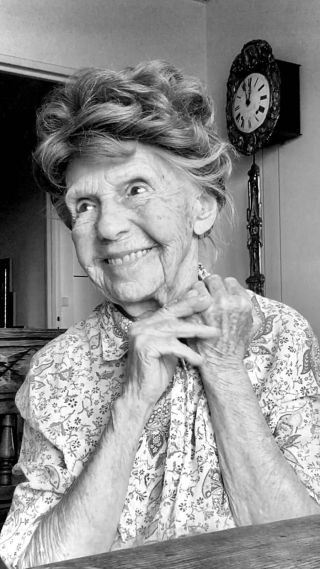 When something as inspiring as this comes along, I believe that it's only right to expose the Mindset, the Attitude and the Practice of this young lady. She is an example to the world on the Value of Purpose, the Discipline of Practising, and the Reward of teaching oneself to respond to the challenges of Life. This recent article appeared in 'Psychology today'.It was written by Chris Gilbert MD., Ph. D.KEY POINTS
109-year-old Colette Maze Source: Christophe Denizot/ used with permissionStudies on longevity show that this is the recipe for most people for a healthy and happy life:
When I heard Colette Maze, a 109-year-old French pianist performing Debussy flawlessly and passionately on French radio, I decided to interview her and her son Fabrice. I was curious to know Colette’s secrets of longevity but also, as a physician, I was curious to know her recipe for keeping her brain functioning and her fingers free of arthritis. Here are her answers, which, I think could be a great lesson for everybody. Colette’s 8 Secrets of Longevity1. Being myself without any compromise: “My parents were upper middle-class and wanted me to marry an upper-middle-class man. I refused. I left my parent’s house at the age of 18 and fell in love with a writer who gave me a son. Another example of being myself without any compromise is that I chose a musical career, which my parents didn’t approve of. The two loves of my life were my son’s father and the piano.” 2. Accepting difficulties as they come: “The father of my son left me soon after my son was born. I became a single mother after the war, and I was criticized and socially ostracized. I had to make a living doing piano accompaniments and giving piano classes. Nothing was easy, but I always accepted the hardships and dealt with them.” 3. Always keeping an optimistic outlook on life: “I always looked at the glass half-full rather than half-empty. People say I have a great sense of humor and, to tell you the truth, I consider myself young. The future is every day we live, and I live each day fully.” Colette Maze plays the piano flawlessly at age 109. Source: Claudia Corbi/ used with permission4. Having a passion: “My passion is the piano and music in general. I especially love Debussy because he corresponds to my sensibility. I like to work with images and Debussy always comes up with images: The wind in the rain, reflections in the water, the fog, dead leaves, footsteps in the snow, etc. So, I immerse myself in those images and I vibrate with them. The word 'trance' would be too strong, but it is a state that resembles it. I will say, by extension, that I love all artistic expressions and especially painting because colors are important to me. I love to dress well, and I harmonize the colors of my clothes. I especially love orange and turquoise colors. I also love dancing. I dance when I feel like it. Alone, I carry out my little choreographies according to my moods. But piano is my main passion. Playing the piano allowed me to weather all the storms in my life. As soon as I get up, I go to my piano, my friend, my universe." 5. Always being amazed at the wonders of nature: “Every day is new, and I am always amazed by nature’s beauty, which deeply moves me. I live in an apartment on the 14th floor on the banks of the Seine and I have a beautiful view of the rooftops of Paris, the river Seine, the clouds, dawns, and sunsets. I know how lucky I am to be healthy and I enjoy every moment.” 6. A busy social life: "I love meetings, visits, exchanges with friends, and being with my son.” 7. Keeping a flexible body: “It is important to me that my body remains flexible, especially my shoulders, elbows, wrists, and fingers. A small rubber ball helps me maintain my fingers' flexibility. I also stretch my fingers and bend them over the edge of a table for example... These are daily exercises that I have been practicing for decades. "If I play the piano without osteoarthritis or tensing of the fingers, it is thanks to my very special piano teacher, Alfred Cortot, at the Normale School of Music (The École Normale de Musique de Paris), which was right next to my home, rue Cardinet, in Paris. Cortot was greatly inspired by the practice of yoga. He created a method based on relaxation.” Fabrice Maze, Colette’s son, says: “At 109, my mother does her yoga postures on the floor every day and spends her time massaging her fingers, constantly. She doesn't have an ounce of osteoarthritis.” 8. A regular lifestyle: “I wake up around 8 a.m. every morning. Generally, my nights are quiet. I don't eat breakfast, just a cup of coffee. And then, after the shower, I rush to the piano. At 1 in the afternoon, I have lunch. I have two Filipino housekeepers who take care of my meals. I love red wine, cheeses, and dark chocolate but cooking has never fascinated me. I eat very little because I don’t have a big appetite, but what I eat is balanced. I take a little nap after lunch and then I play the piano again. Of course, some mornings or afternoons are devoted to visits from friends. In the evening, I go to bed quite early, around 9 or 10 in the evening. I used to watch television often, but less recently. Oddly enough, I love watching football (soccer).” I asked Colette what advice she could give my readers to live as long as her and be as happy. Here is her answer: “Everyone has their destiny. You come to our planet to fulfill yourself and your gifts through a short life. Days on earth are not easy, and everyone encounters their share of trials and sufferings. We must always keep hope, and above all, keep our childlike wonder of the world.” Colette has become a star on social networks. People come to interview her from Japan, Spain, and Italy. A San Francisco TV station recently asked for her to cross the Atlantic, which she declined. At the age of 109, Colette just released her seventh album, which, of course, has some Debussy in it. “Our belief at the beginning of any undertaking is the one thing that will ensure it’s successful conclusion.”
That’s a paraphrase of the words uttered by William James, a famous psychologist of the 19th century. Since then, cultures worldwide have based their societies and ethics on those words. That's not to say that because we believe in something that it guarantees success. There are no guarantees. But whatever chance we have if we believe; we've none if we don't. Belief fuels the energy of the mind. When people set a goal, the belief in the eventual outcome guides their thinking, which influences the feeling, which determines the force and the effects of what ever action is taken. This concept of belief is a deeply personal thing. This is one of the reasons why I advise people at the outset of any programme to keep their aims to themselves. At the beginning of a new project, the goal can seem remote, and the belief can be fragile. But when action is taken, the goal begins to clarify, and the belief begins to strengthen. This why people should not only to keep their goals to themselves, but also to revisit them daily, make what adjustments or modifications they see, fit, and familiarise themselves, totally, with what they want to achieve, and what it means to their lives. Sometimes this can mean that a goal, because it is studied more closely, changes. This is a good thing, as it means that the aspirant will have realistically studied his goal, considered the difficulties, calculated the odds, and decided to pursue the end. And no matter how far-fetched the goal may seem to anyone else, he or she will be convinced of its feasibility. But that feasibility needs to be protected and nourished. None, or very few, will be able to see what you see. This is why the term vision is used when people ignite their lives with the sense of purpose that comes from their own imagination. It is the chance in their lives to turn a dream, an imaginary thing, into reality. When it happens, the person is hailed as a Visionary. If it fails, the person can be dismissed as a dreamer. Belief, resilience, persistence and courage are often the characteristics more necessary than talent, or a stroke of genius, or academic qualification. (See the recent post on 'persistence'.) The study, thinking about, the personal involvement with the possible attainment of that goal is the driving force behind every action. Every thought, every word connected with the objective will assume significance. So, never be afraid to question your beliefs, and if, on questioning, you still believe in them, pour your heart and soul into them and watch them flourish. And to hell with the naysayers. For some reason, the awareness of the necessity to persist has come to the fore recently. I’ve had about seven emails over the past few days asking me to repeat the email of a couple of years ago on ‘persistence’.
The email was based on a quote by Calvin Coolidge, who was President of the United States in the 1920s. I can very well understand the desire to reread his inspiring quote, but I’m wondering what instigated this awareness of it, at this time, that compelled people to ask about it. Any suggestions? Is there something in the news that I’ve missed? Have you noticed anything that might trigger this? Here’s the quote. Read it and enjoy it and think about it. 'Nothing in this world can take the place of persistence. Talent will not: nothing is more common than unsuccessful men with talent. Genius will not; unrewarded genius is almost a proverb. Education will not: the world is full of educated derelicts. Persistence and determination alone are omnipotent.' Gentle stretching, done frequently, with attention, and intention, can make a world of difference to your life.
That is no exaggeration. “He’s carrying the weight of the world on his shoulders“, is one of the classic phrases used to describe the person who worries, overreacts, and can be generally besieged by problems in life, many of which don't exist. Marcel Proust, the French, philosopher, and writer said on his deathbed, “my life has been a series of catastrophes, most of which never occurred“. The inner shoulders, known as the area of Primary Control, can create tension, stress, and even massive distress. Inappropriate stress often comes from seemingly insignificant small events. A missed phone call, a red traffic light, a parking ticket, being late for an appointment, all relatively small things in themselves, but they can accumulate into a massive force. The cosequence is physical tension and distress. When we train, and when I say train, I mean teach, or inform, when we train our minds and bodies to adapt to a particular state of being loose, composed and calm, we lessen the effect of physical reaction to life’s events. Much of the stress experienced today comes over time from our physical reactions to events that take place daily. When we become even mildly alarmed, our shoulders tense, our muscles tighten, adrenaline pumps our systems in readiness to fight or flee. Tense muscles act like clamps on the circulation system, and place massive pressure on the heart and on the arteries. This can become habit. The wrong kind. It creates inappropriate tension and as we continue to do it frequently, we get good at it and suffer chronic tension. We can reverse this. By teaching our bodies to be at ease, composed and free from conditioned tension, we unlearn the wrong habit and begin to reteach ourselves to be free of much, if not all, of the stress we place on ourselves. If we are in agreement that life is not so much about what happens to us, but about how we react to what happens to us, then we have a clear path to reacting, and even responding, to circumstances that can change the quality of the lives we lead. Learning the state of composure and the condition of mindful attention to how we are using ourselves allows us think more clearly in any situation. As we know, what undoes us in stressful events is not so much the circumstance with which are faced, as it is how we react to it. Which is another way of repeating that venerable adage, 'Life isn't so much about what happens to us, as it is about how we respond to what happens to us.' For information on the innovative and effective workshops coming up in the latter end of June, see HERE. It's everywhere.
'The next level'. You can't open any of the Social Platforms without being exhorted to bring whatever it is you do to the 'next level'. While it's tiresome to read the same old scripts masquerading as copywrite, there are times when the phrase is apt. Never more so than in the area of Personal Development. Recent experience has reiterated the importance of learning basics. Just like the alphabet, or basic chords on a guitar, or basic scales on a piano, or being in contact with people if you expect to do a business, there are fundamental to every skill. Without the fundamentals, the more sophisticated moves, systems, procedures, have no substance. In any activity. Which brings us back to the 'next level'. On a programme about six months ago, in which I was teaching the value of Human Contact and Customer Care to a gym' team, the emphasis was on communication skills. Most of the team had NEVER been taught the basics of communication, the core of Customer Care. The retention rate of members in the premises was very low, which was why the Management had asked me to deliver the programme. Now, the boys and girls on the team were more than adequately qualified to instruct their charges in safety and procedures. But, as in everything, it isn't so much what you do, as it is how you do it. The premises had outsourced courses previously, but the delivery either assumed a knowledge of the basics, or wasn't aware of them. Over the following immediate months of completing the programme, there was a marked increase in Renewals of membership. Fundamentals work. The same goes for being Fit, Healthy and Well. The 'next level' is usually reached by a diligent application of the principles that apply at EVERY level, for the accomplished athlete or the complete beginner. It's not in the 'Magic Bullet', the 'Silver Sword', or the 'Gound breaking Discovery' of the latest Guru on the scene. It's usually by the painstaking, attentive, intelligent application of personal resources. That's where we tend to discover, with the benefit of practice and experience, other values and aspects to what we've already learned. We see things that could not have been seen before because we didn't know what they were. We weren't aware of them. And you can't learn what you don't know exists. But once we understand the potential that is within the realm of possibility, then our horizons broaden, our minds open and we can truly, take ourselves and our lives, to the next level. Keep it simple. Do it well. Every Friday evening without fail, Maurice called in to Larry Murphy's.
Remember Larry Murphy’s? His intention was to have one gin. It usually went to two, or three, sometimes four. Whenever Maura thought about going for a glass of wine, or a coffee, she saw a very clear picture of herself, with the glass, or the coffee, invariably smoking a cigarette. Though these habits are physical, they’re generated by mental images. These images are so strong that when Maurice arrived at Baggot St., even if he was late leaving the office, he parked, without thinking, at the nearest spot he could find to Larry‘s. As Maura journeyed to her place for the glass of wine, or the coffee, she unconsciously searched her bag for cigarettes. If she didn’t have them, she went and bought some, in order to complete the picture in her mind. These images are so entrenched that they determine our actions and behaviours without our even realising it. Once aware of this, Maurice bypassed, Baggot St., and within a month had changed his route, his drive home on a Friday night, and kicked what he saw, was becoming an insidious habit. Maura practised seeing a different image when she thought of her glass of wine and coffee. She made an outrageously different picture in her mind of herself taking long deep breaths as she sat in the wine bar and sipped from her glass. In her underwear. This gave her a different picture and a different feel about the whole event. And of course, a new perspective. That’s a way to change a mental habit. Alter the pattern of the habitual image and see what happens. Maura taught herself to see the cigarette she was smoking was a soggy butt, taken from the street. Her reaction to this idea was disgust. The association of ideas with smoking grew more revolting by the day. Now even the thought of cigarettes is nearly enough to make Maura nauseous. A whole new range of projected activity comes into view. The picture changes, the thought pattern changes and the response to it changes. Then persist with the change. That can take a bit of time, determination, and the power of decision. The real change is in the thinking about it. Constantly. Think about the new image, one that you can clearly imagine and that you can develop till it becomes the dominant force. As in ALL skills, it’s the attention to the process that makes the change; the daily indomitable determination to use each day to apply the thinking that revises the viewpoint. It may take time; a day, a year, a minute. But once the picture clears and settles in the framework of the imagination, the course is certain, the destination assured. |
|

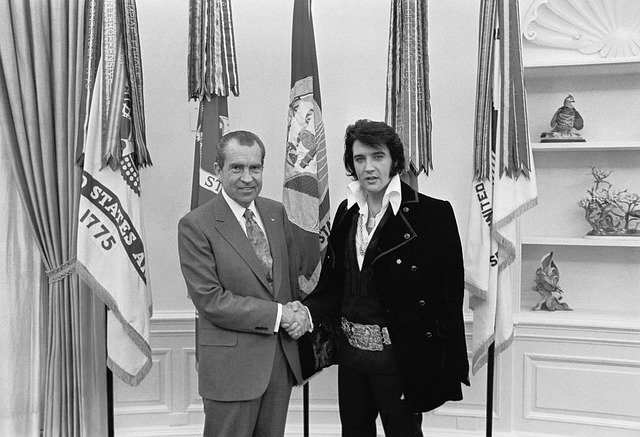
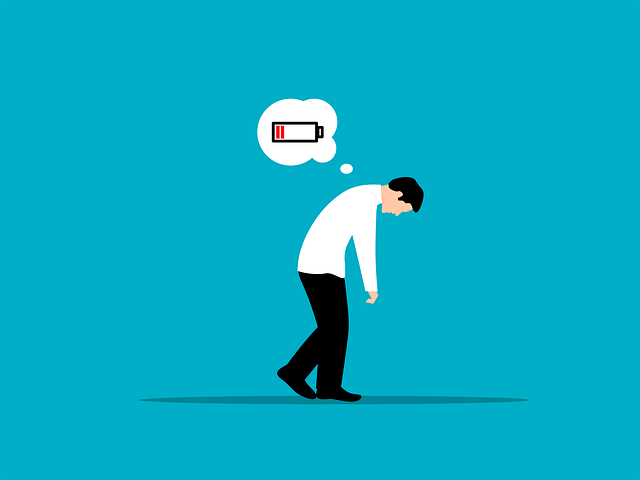



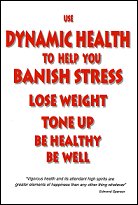
 RSS Feed
RSS Feed
